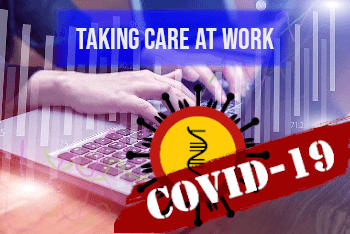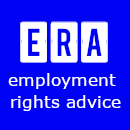 Covid - 19, The Corona Virus
Covid - 19, The Corona Virus
Health & Safety at Work
As an employer in Ireland, what should I do to prepare against the Corona virus outbreak? What is my duty of care towards my employees? How do I deal with an employee who wants to self isolate? These are some of the questions we will deal with in this article on the impact of the Covid - 19 (Corona Virus) on employers and employees in Ireland. The situation regarding the corona virus Covid-19 is being updated on a daily, if not hourly basis. As an employer you need to take that into consideration and actively seek updated information on the coronavirus, and assess the risk to your business accordingly.
Update 9th March 2020
The Government has announced that it will bring in emergency legislation to help alleviate the pressure on payment of sick leave caused by the Covid -19 Corona virus. New measures include:
-
An increase in the maximum amount of State sick pay from €203 per week to €350 per week. This will be payable for an absence of up to two weeks where medically certified as due to the Corona Virus.
-
The normal 6 day waiting period will not apply.
-
The self employed will be able to claim sick pay in these circumstances, ie medically certified Corona virus absence.
-
No requirement for a minimum number of PRSI contributions.
-
Payment can be made retrospectively to the date of the announcement (9th March 2020).
-
Existing State sick pay benefits will continue.
These measures are designed to encourage workers ,who suspect that they may have the Covid-19 Corona virus symptoms, to come forward and identify themselves to their medical practitioner, with the knowledge that they will receive payment if they have to be off work for two weeks on the doctors certification.
These measures are for medical practitioner certified isolation/treatment only. They do not address the worker who voluntarily self isolates.
Health & Safety at work
Under the Safety, Health & Welfare at Work Act 2005, you have an obligation, as an employer to protect the health, safety and welfare of your employees, having regard to what is reasonable and practical. The Safety, Health and Welfare at Work General Regulations 2007 (as amended) lay out in more detail how to go about providing a safe working environment. They cover, in particular ventilation of the workplace and the provision of washing amenities. Carrying out a risk assessment in respect of the impact of the corona virus Covid-19 on your employees and your business as a whole is a reasonable and practical step to take. There is an obligation on you as an employer to assess and minimise risks to staff . In terms of the law of negligence, there is also a duty of care towards your employees, to protect them from injury which is reasonably foreseeable. The corona virus fits that definition. Act now, if you have not already done so, carry out a risk assessment and implement the findings.
What information is available on the corona virus and the workplace?
-
The Irish Government has information available on its website see here
Further information is available from:
This is just a quick list of available sources. You should carry out your own research online and through the news media.
What practical steps can I take to reduce the impact of the corona virus ?
-
As stated already, carry out a risk assessment.
-
Other practical actions you can take to prepare a response to the corona virus are listed on the website of the Department of Enterprise, Trade and Innovation. For more see here
-
Talk to staff. Let them know that there is a plan, and what their part in it is. It is in the best interest of everyone for all parties to work together to overcome the difficulties casused by this outbreak of the corona virus covid - 19.
-
Keep up to date on the affected areas and ask staff to let a designated member of management ( usually HR or the business owner, if a small enterprise) know if they intend to travel to an infected area.
-
Is overseas business travel really necessary? Where there are alternatives, such as video conferencing, Skype, Whatsapp, Signal etc., consider using them.
-
Check that you have up to date sickness and absence policies in your employee handbook. Make all staff aware of these policies and what to do in the event of sickness or absence. If you do not have an employee handbook, or it has not kept up with all of the recent changes in employment legislation, then now is a good time to get an up to date employee handbook.
For more on employee handbook see here
- Review your terms of employment. Does the employment contract deal with force majeure situations? Some employees may have to take force majeure leave as a result of the corona virus outbreak. Employees may be able to take up to five days paid statutory force majeure leave in order to care of an ill family member, if they comply with elligibility rules.
For more on Force Majeure leave see here
-
Keep it clean. Encourage all employees to follow a strict hygiene regime. Where possible, provide hand sanitisers, access to soap and hot water. Practice good respiratory hygiene. Trap germs when coughing or sneezing. See Guidance on COVID-19 for workers dealing with the general public
-
Examine the possibility of employees working remotely in the event of a worsening of the corona virus outbreak. Be prepared. Plan now and avoid panic later.
- Consider the use of leave to deal with the impact of the corona virus
- Where your business has been affected by the corona virus outbreak in a way which affects your ability to provide work for your employees, you should consider using lay off periods to ease the strain. This involves laying off an employee for a short period of time on a temporary basis.
For more on lay off see here
In sickness and in health. When is an employee entitled to be paid ?
While there is no legal obligation on an employer to pay a worker on sick leave, unless the contract of employment states otherwise, the answer to the question “Should a worker affected by the corona virus outbreak be paid ?” can be a bit of a balancing act, especially where a business has been negatively impacted by the outbreak of the corona virus covid-19.
Can they work remotely?
If the answer is yes and they are not sick,then they should be paid for the work which they do.
What if they cannot work remotely and are not sick?
If you, as the employer have asked them not to come in to work because of the risk to the health and safety of the workforce, then they are entitled to be paid, as they are available for work, but you have asked them to self-isolate. If you are unable to pay them, they should apply for Supplementary Welfare Allowance or Jobseeker payment.
What if their doctor has advised them to self-isolate ?
In this case, you have not asked them to self-isolate, they have chosen to do so. In a strict interpretation of employment legislation, you are not obliged to pay them, however, if you do not pay them, they may be forced to come in to work by economic necessity. Workers have a duty of care towards their fellow workers. They have an obligation not to cause injury to others in the workplace. Any employee who believes that they are in the category of persons who are recommended to self isolate, is in breach of that duty of care towards their fellow workers, if they attend at the workplace.
Where an employee has been advised to self-isolate by a medical professional, the Department of Employment Affairs and Social Protection has confirmed that illness benefit will be available, where they meet the nessary requirements. They may also be entitled to Supplementary Welfare Allowance to cover the gap between being off work and obtaining payment of illness benefit.
What if they have returned from an infected area?
This depends on whether they travelled there in the course of their employment or in their own time.
If the journey was for business purposes, then you would be obliged to pay them until they obtained sickness benefit, or in accordance with the workplace sickness and benefit policy, if there is one.
Where the employee travelled for leisure reasons, then this is similar to the doctor advising self-isolation situation, mentioned previously.
What should I do if I suspect that an employee may be infected?
Put together a contingency plan now, so that you are prepared for such an eventuality. The contingency plan should incorporate much of the matters dealt with in this article. Make staff aware of the procedure to follow if they have concerns that they or a fellow employee may be infected. Nominate a person from management,to receive this information. Let all staff know who this person is and that they are to stay away from work, pending further investigation. Even if the terms of employment do not mention it, you may be able to request the staff member to attend the company appointed medical practitioner to be examined, if there are reasonable grounds for so doing.
Don’t forget the GDPR. Keep it private.
The medical condition of any staff member is covered under the General Data Protection Regulation (GDPR). Any such information must be kept private. You should take steps to ensure that any employee in charge of such sensitive information is made aware of the necessity to protect an employee in such a situation. Any breach of an employees data protection rights can have a serious impact on the business. Prevention is better than cure.
For more on GDPR see here
 Currently showing on our YouTube channel
Currently showing on our YouTube channel
"The Employment Law Channel"
Covid-19: An employer's guide to short time and lay off in Ireland
 Covid-19: Working from home during Covid-19. An employer's guide
Covid-19: Working from home during Covid-19. An employer's guide
An evolving and ever changing situation
The impact of the corona virus Covid-19 is constantly under review by the authorities and experts alike. This article deals with a snap shot in time. You should be vigilant but not in a state of panic. Stay informed of any developments. If you have any particular questions which you would like answered, please contact us using the orange Yes! Tell Me More button below and we will contact you at a time that suits.
Spread the knowledge. If you found this article useful, please like and share using any of the social buttons below.








